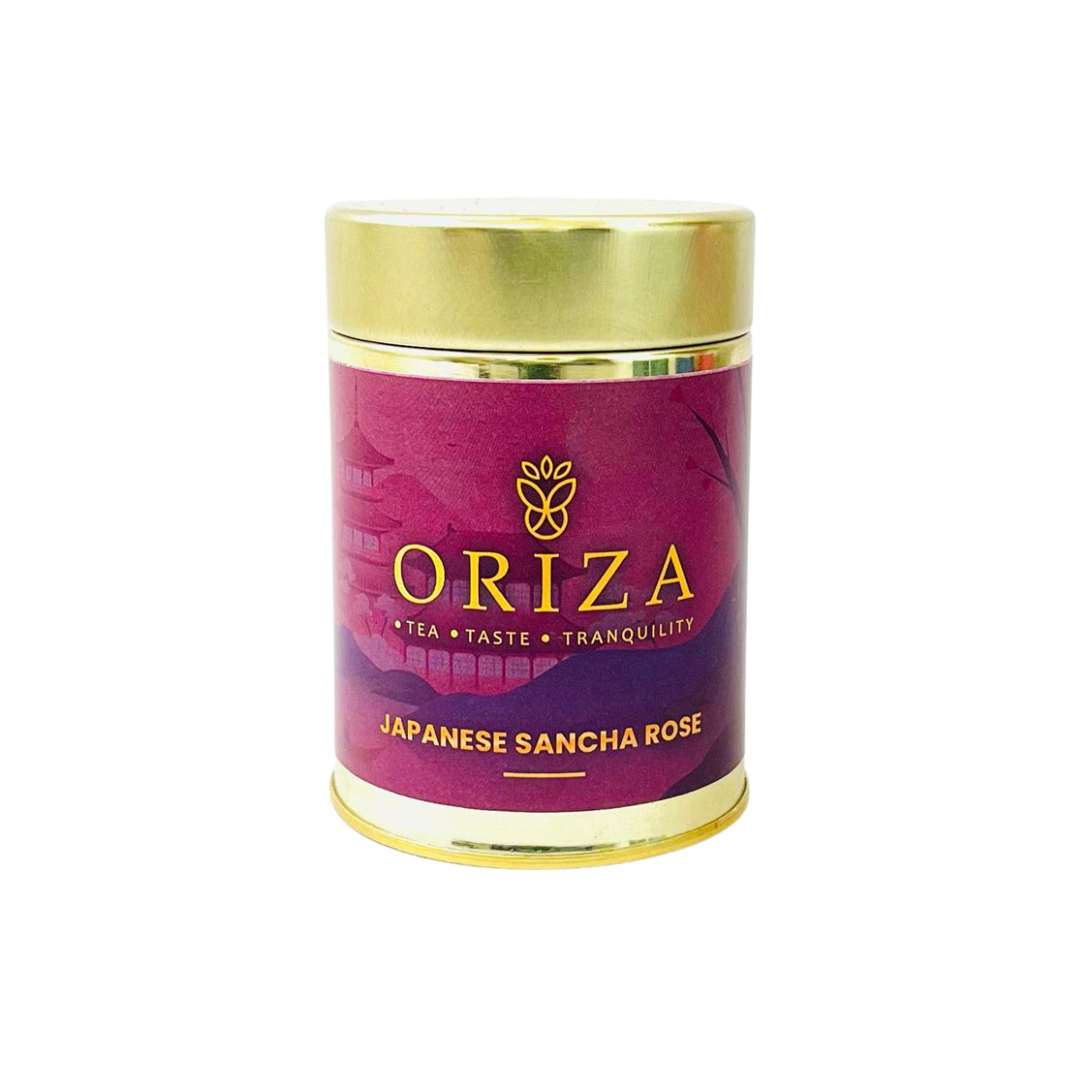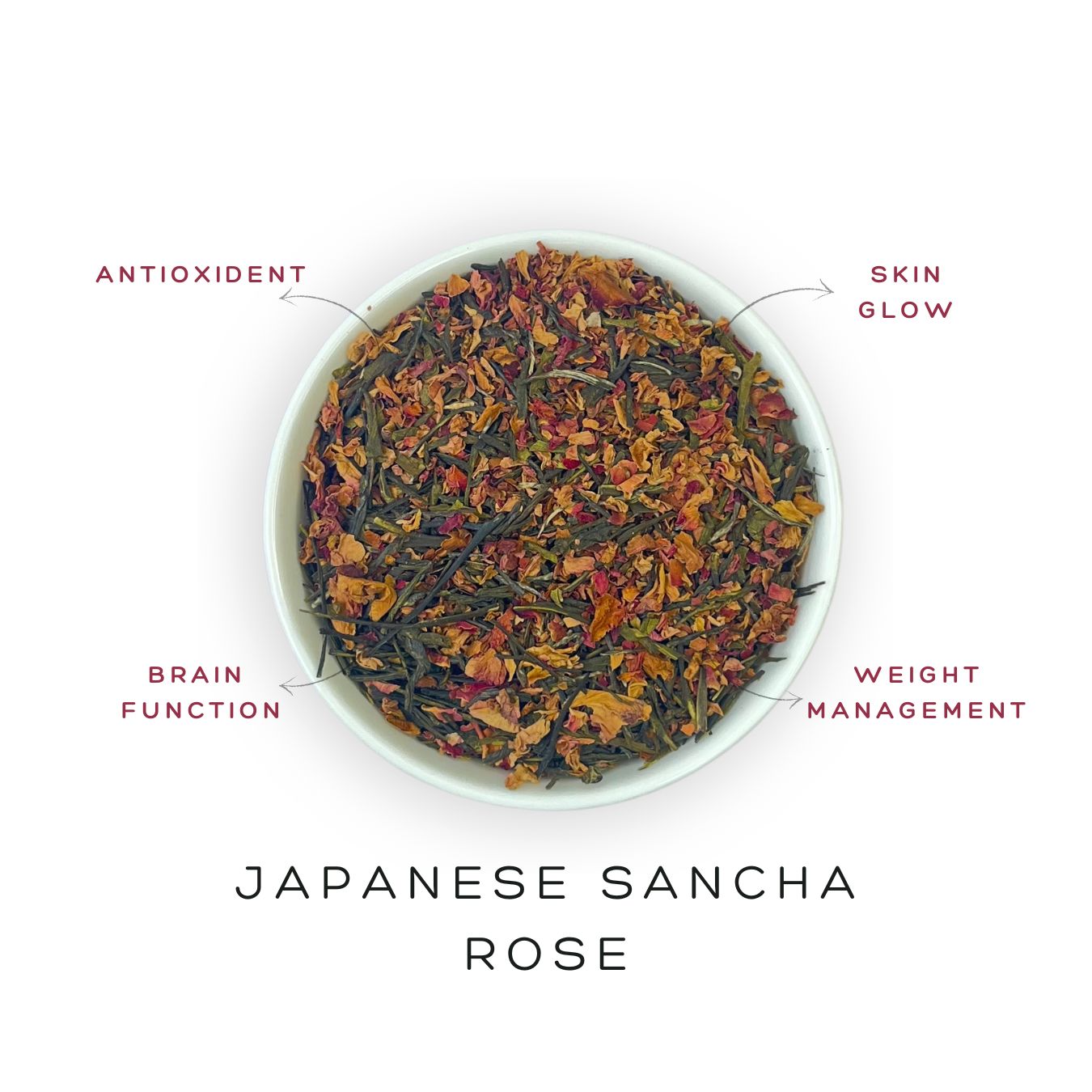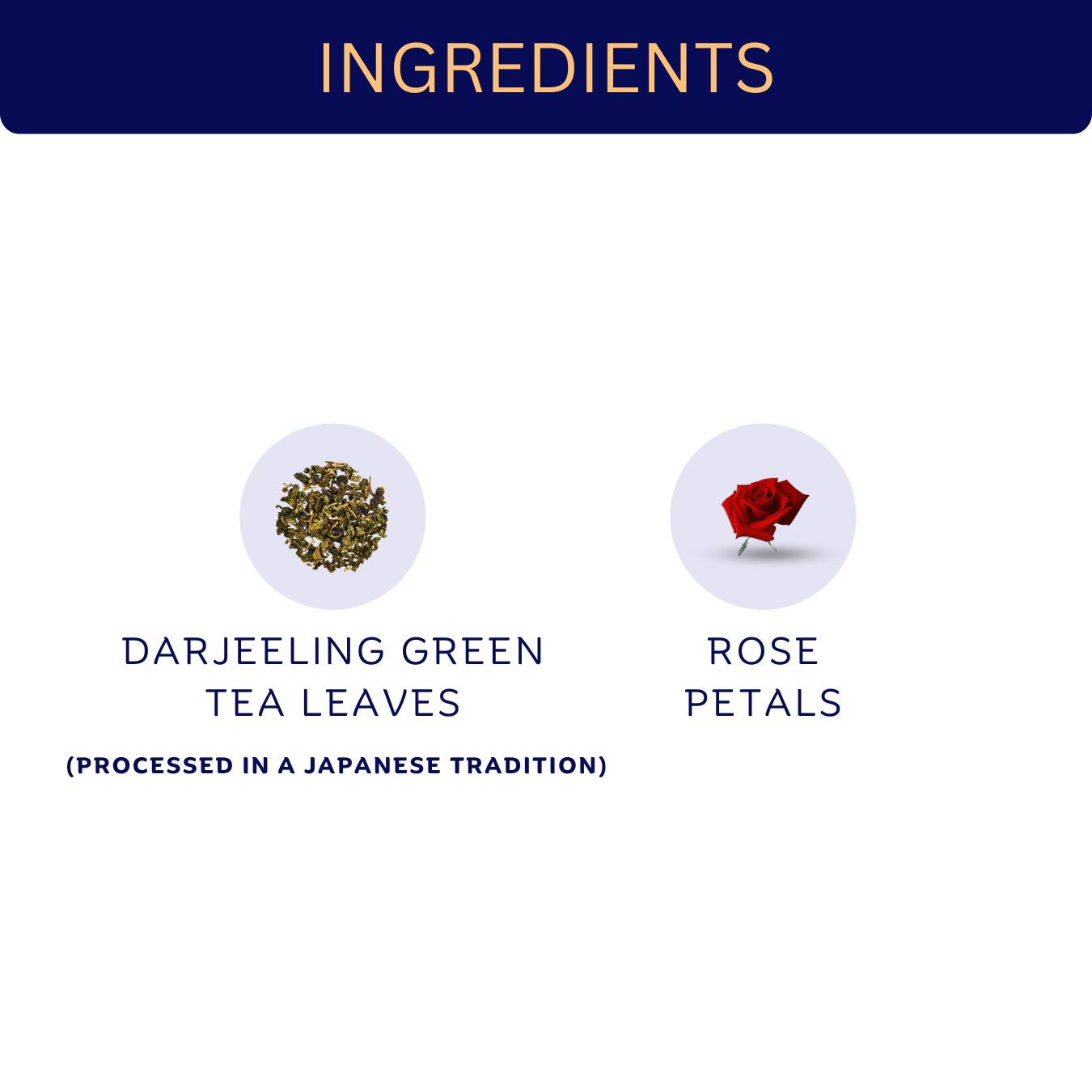ORIZA TEAS
Japanese Sancha Rose
Japanese Sancha Rose
Couldn't load pickup availability
Share





-
Benefits
-
Ingredients
-
How to Brew
-
Faqs
- Japanese Sancha Rose Tea provides antioxidant-rich support for overall well-being.
- Japanese Sancha Rose Tea may support weight management through its potential metabolism-boosting properties and contribution to overall well-being.
- The tea's anti-inflammatory properties may contribute to reducing inflammation and promoting health.
- Japanese Sancha Rose Tea may enhance skin glow with its antioxidant-rich composition, promoting a healthy and radiant complexion.
- Japanese Sancha Rose Tea may contribute to reducing cholesterol levels, supporting heart health with its potential lipid-lowering properties.
- Japanese Sancha Rose Tea may support brain function through its antioxidant content, potentially contributing to cognitive health and overall mental well-being.
- Japanese Sancha Rose Tea may help boost immunity with its antioxidant-rich composition, supporting the body's defense against infections and illnesses.
- Japanese Sancha Rose Tea may provide essential minerals, contributing to overall health and well-being with its nutrient-rich composition.
- Japanese Sancha Rose Tea may offer a source of Vitamin C, contributing to immune support and overall health.
- Darjeeling Green Tea Leaves Processed In A Japanese Tradition
- Rose Petal
Hot Brew:
- Tea Quantity: Measure 2 grams of tea.
- Water Quantity: Boil 160 ml of water.
- Steeping Time: Add the tea leaves to the hot water and steep for 3 minutes.
- Water Temperature: Ensure the water temperature is around 80°C.
- Caffeine Content: This hot brew will result in a moderate caffeine content.
Cold Brew:
- Tea Quantity: Use 8 grams of tea.
- Water Quantity: Pour 500 ml of water into a container.
- Steeping Time: Place the tea leaves in the cold water and steep them overnight.
- Water Temperature: Keep the container refrigerated during the entire steeping process.
- Caffeine Content: Cold brew will also yield a moderate caffeine content.
What are the benefits of Sancha Rose tea?
Sancha may have anti-cancer properties, aid weight loss, anti-aging properties, prevention of neurodegenerative diseases, anti-inflammatory properties, lowering bad cholesterol, and anti-bacterial properties.
When should I drink Sancha Rose tea?
Sancha rose tea is recommended after meals due to the benefits of catechins, so this tea can also be a great choice in the afternoon.
How is Sancha different from green tea?
Sancha comes from green tea plants that have been grown in direct sunlight. Matcha, on the other hand, comes from green tea plants that are covered and grown in the shade just before harvest.
Which is better Japanese or Chinese green tea?
Japanese green tea contains more antioxidants than Chinese green tea, with 60% antioxidants compared with Chinese green tea’s 12-16 percent.
Is there caffeine in Sancha tea?
Depending on the variety and brew, sancha can contain between 12 and 75 milligrams of caffeine.
Does Sancha taste like Matcha?
Sancha green tea produces a dark green powder that is often characterized by a “Grassy” flavor profile. It is more pungent than the Matcha green tea.
Is Sancha tea healthy?
Yes! Sancha tea is known for its health benefits, including its ability to fight chronic diseases, aid in weight loss, protect the immune system, increase energy, and stimulate cognitive activity.
How many times can you steep Sancha?
High quality Sancha may be reused three times.
Such a fragrant and uplifting tea! I love the way rose and Sancha come together without overpowering each other. It’s helped me unwind mentally and has also improved my water retention issues. A must-try for tea lovers!
Oriza’s Japanese Sancha Rose tea is both elegant and effective. The taste is smooth with a gentle floral finish—very calming. It helps with digestion and keeps me relaxed after a long day at work. A wonderful tea experience!
This tea has become my daily detox ritual. The delicate rose flavor makes every sip feel luxurious. Since I started drinking it regularly, my bloating has reduced and my skin feels healthier and more radiant.
I’ve never had a tea like this before—light, aromatic, and so refreshing! The rose blends beautifully with the Sancha green tea, making it a perfect evening drink. I’ve noticed a boost in my metabolism and better focus during work.
The combination of Japanese Sancha with rose petals is simply divine. The floral notes are subtle yet soothing, and I feel incredibly calm after every cup. It has helped me reduce my stress levels and improved my digestion as well.





